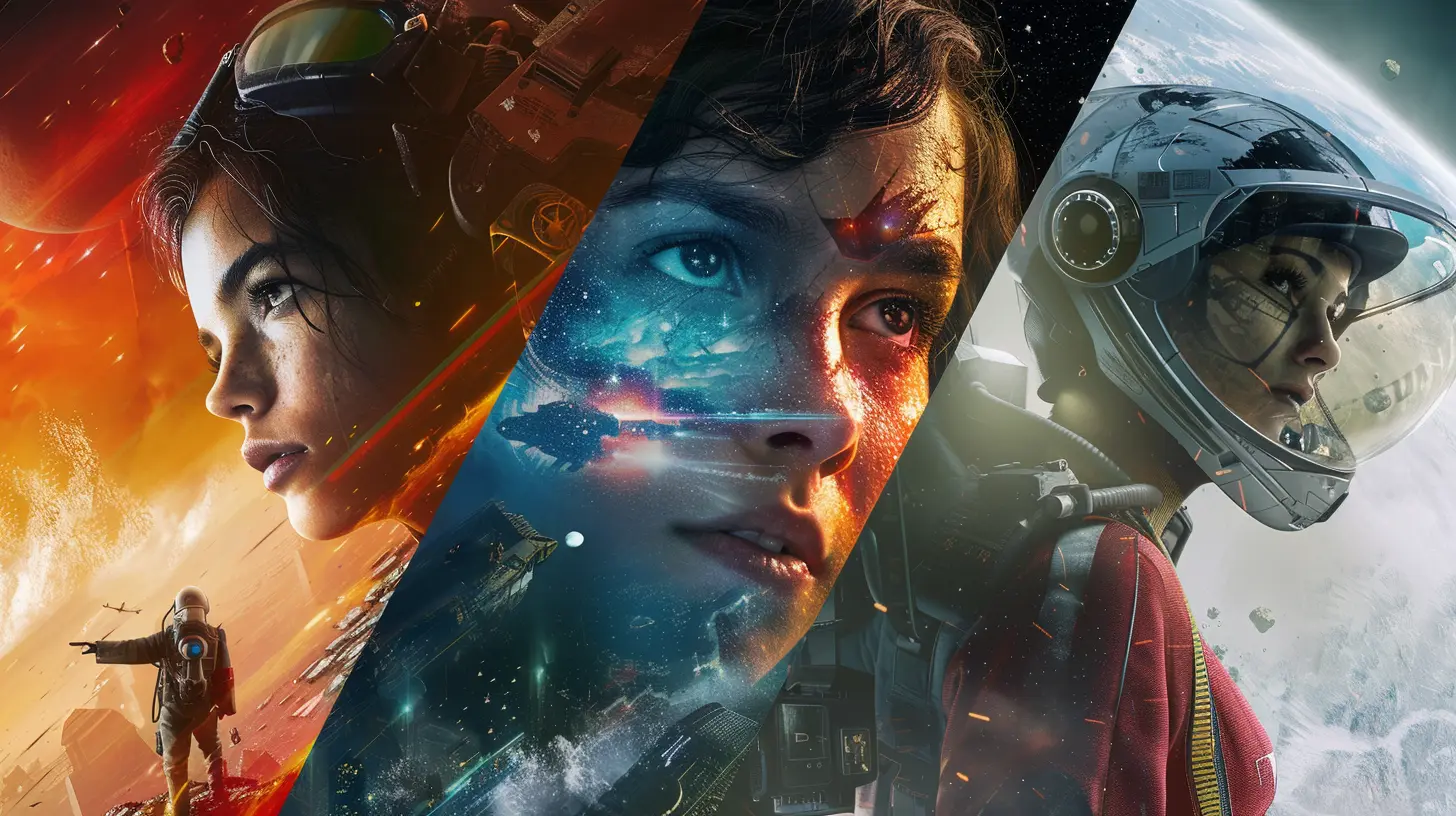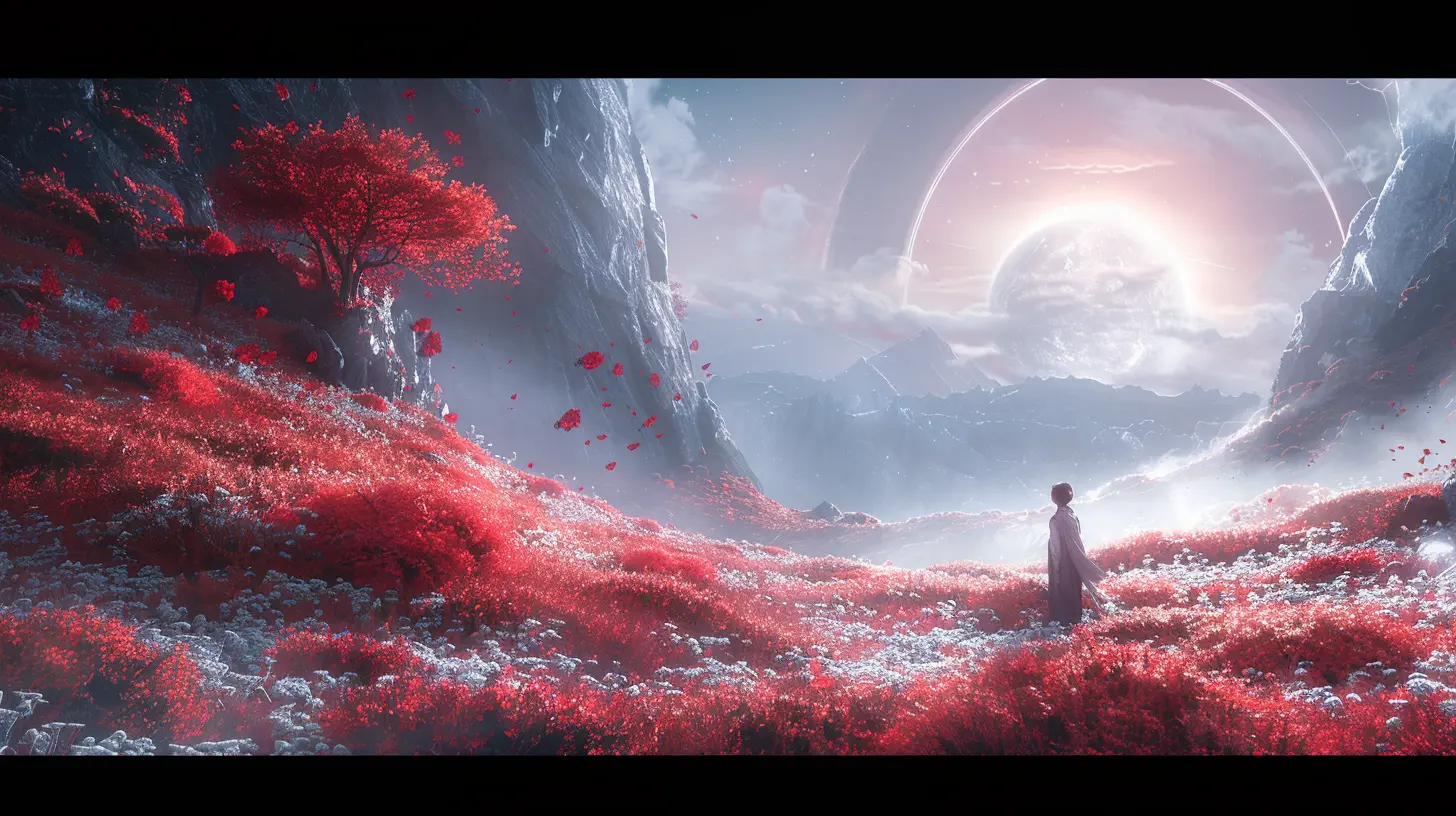Do Game Awards Really Influence Creative Direction for Future Titles?
9 June 2025
Video game awards are the Oscars of the gaming world—glitzy ceremonies where developers, publishers, and fans come together to celebrate the best titles in the industry. Over the years, events like The Game Awards (TGA) have grown into cultural milestones. But amidst all the hype, the question arises: do these awards actually influence the creative direction of future games, or are they merely a pat on the back for a job well done? Let’s dig in and see what’s really going on here.
The Hype Behind Game Awards
Game awards are more than just shiny trophies. They're a stage for huge announcements, trailers, and even viral moments. For the gaming community, they’re like Christmas. But while fans obsess over which title takes Game of the Year (GOTY), industry insiders might be paying more attention to the ripple effects these awards have within development studios.Are these awards just the cherry on top of a successful year, or do they form a road map for the games we’ll play in the future? Well, that depends on who you ask.
The Industry’s Perspective: A Benchmark for Success
For developers, receiving a Game Award isn’t just validation; it’s a public stamp of approval. Think about it: if your game wins big, it’s like walking out of a job interview with a glowing recommendation. Awards often bring more visibility, better sales, and higher credibility—not just for the title itself but for the studio behind it.This added clout can influence future projects, but not always in ways you might expect. For instance:
- Market Pressure: A Game of the Year win can set expectations sky-high for sequels or follow-ups. Just look at The Last of Us Part II. Its predecessor swept the awards circuit, which put immense pressure on Naughty Dog to deliver something spectacular. Did the awards influence its creative direction? Maybe not entirely, but it surely added weight to every decision the studio made.
- Publisher Expectations: On the flip side, publishers often use awards as KPIs (key performance indicators). A well-decorated game can mean bigger budgets for the next project but also stricter oversight. After all, if you’ve hit the top once, why wouldn’t they expect you to do it again?
Are Awards the Creative Compass of Gaming?
Here’s the thing: while awards are great, they’re not necessarily the driving factor for creative decisions. A game’s direction is shaped by a mix of market trends, technological advancements, and artistic ambition. But awards do have a way of tilting the scales, especially when it comes to:1. Genre Popularity
Remember how The Witcher 3 won virtually every award it was eligible for back in 2015? Its sweeping open-world design and narrative depth set a gold standard, prompting studios everywhere to pivot toward more expansive RPGs. Even franchises that had nothing to do with fantasy—like Assassin’s Creed—started incorporating similar mechanics.Does that mean studios are copying the award winners? Not exactly. It’s more like they’re taking notes and asking, “What made this work so well?” Awards spotlight trends, and trends, like dominoes, nudge the industry forward.
2. Storytelling and Emotional Depth
Games like God of War (2018) and Red Dead Redemption 2 redefined what storytelling in gaming could look like. Their massive awards hauls didn’t just elevate the games themselves; they sparked conversations about how emotional depth and mature themes could enrich the medium. Now, even action-heavy series like Doom are weaving deeper lore into their worlds.Would these shifts have happened without the awards? Maybe. But the accolades definitely helped cement those changes as benchmarks for excellence.
3. Innovation vs. Playing It Safe
Game awards have an interesting push-pull effect on innovation. On one hand, they reward creativity—games like Celeste and Hades prove that even indie titles can sweep the stage. On the other hand, the promise of awards can make studios hesitant to stray too far from proven formulas.It’s a balancing act: do you risk creating something avant-garde, or do you stick to what works and hope the awards follow? For some devs, awards act like a lighthouse, guiding their decisions. For others, they’re a reminder that playing it safe isn’t always a bad strategy.
The Players’ Perspective: Does It Really Matter to Us?
Let’s flip the script for a second. Do gamers care if a title wins Game of the Year? Honestly, it depends.For many players, awards are just a validation of what they already love. If their favorite game wins, it feels like a vindication of their tastes. If it doesn’t, well… cue the social media debates.
But do these awards influence what we want to play next? Sort of. A heavily awarded game is more likely to land on someone’s “must-play” list, especially casual players who might not dive deep into gaming forums. Think about it: how many people tried It Takes Two just because it won Game of the Year in 2021? Awards increase visibility, and visibility drives sales.
The Double-Edged Sword of Attention
Here’s where things get tricky: while awards boost visibility and credibility, they can also create unrealistic expectations. When a game is praised to the high heavens, newcomers often go in expecting perfection. And let’s be real—perfection in gaming doesn’t exist. Even critically acclaimed titles like Breath of the Wild or Elden Ring have their detractors.This kind of hype can backfire, putting undue pressure on both games and their creators. It’s a classic double-edged sword: awards bring attention, but they also bring scrutiny.
What About Indie Games?
While blockbuster titles often steal the spotlight, game awards are increasingly celebrating indie darlings. Titles like Hollow Knight, Disco Elysium, and Undertale show that smaller-budget games can punch well above their weight class.For indie developers, awards can be life-changing. The added exposure often leads to better funding, larger player bases, and higher chances of future projects getting greenlit. If nothing else, awards validate the hard work of tiny teams that pour their hearts and souls into their creations.
So, Do Awards Truly Shape the Future?
The short answer? Yes, but not always in obvious ways. Awards act as a mirror for the industry, reflecting what works and what resonates with audiences. They highlight trends, set benchmarks, and sometimes even shift public perception about what games can be.But they’re just one piece of the puzzle. Awards alone don’t dictate creative direction—they’re more like a guiding star, encouraging developers to chase excellence while navigating the ever-changing landscape of gaming.
At the end of the day, it’s not the trophies themselves but the conversations they spark that shape the future of gaming. Whether it’s a studio doubling down on a winning formula or breaking new ground to stand out, awards are part of the ecosystem. They’re not the sole driver, but they’re certainly an important cog in the machine.
Final Thoughts
So, do game awards really influence creative direction for future titles? Yes, but their impact is more nuanced than you might think. They inspire, guide, and sometimes pressure developers to aim higher, but they’re far from the only factor shaping the games we’ll play tomorrow.As gamers, it’s fun to celebrate these awards, argue about winners and losers, and speculate on what’s next. But at the end of the day, what matters most is whether the games themselves continue to captivate, challenge, and entertain us. And if awards help make that happen, then they’re doing their job, aren’t they?
all images in this post were generated using AI tools
Category:
Game AwardsAuthor:

Leif Coleman
Discussion
rate this article
3 comments
Savannah Rodriguez
Are accolades mere accolades, or do they shape the very soul of gaming’s future? Delve into the shadows where recognition meets innovation—secrets lie within.
June 17, 2025 at 2:56 PM

Leif Coleman
Accolades can both reflect and influence creative direction, serving as a catalyst for innovation while also shaping industry trends and standards.
Gemma McGarvey
Great insights! Awards definitely shape future game creativity and trends!
June 15, 2025 at 4:35 PM

Leif Coleman
Thank you! I'm glad you found the insights valuable. Awards can indeed inspire innovation and set trends in the gaming industry.
Carrie Bishop
Game awards can inspire developers, but creativity ultimately stems from passion and innovation, not accolades alone.
June 9, 2025 at 2:45 AM

Leif Coleman
Absolutely, while game awards can motivate developers, true creativity comes from their passion and willingness to innovate beyond just seeking recognition.



